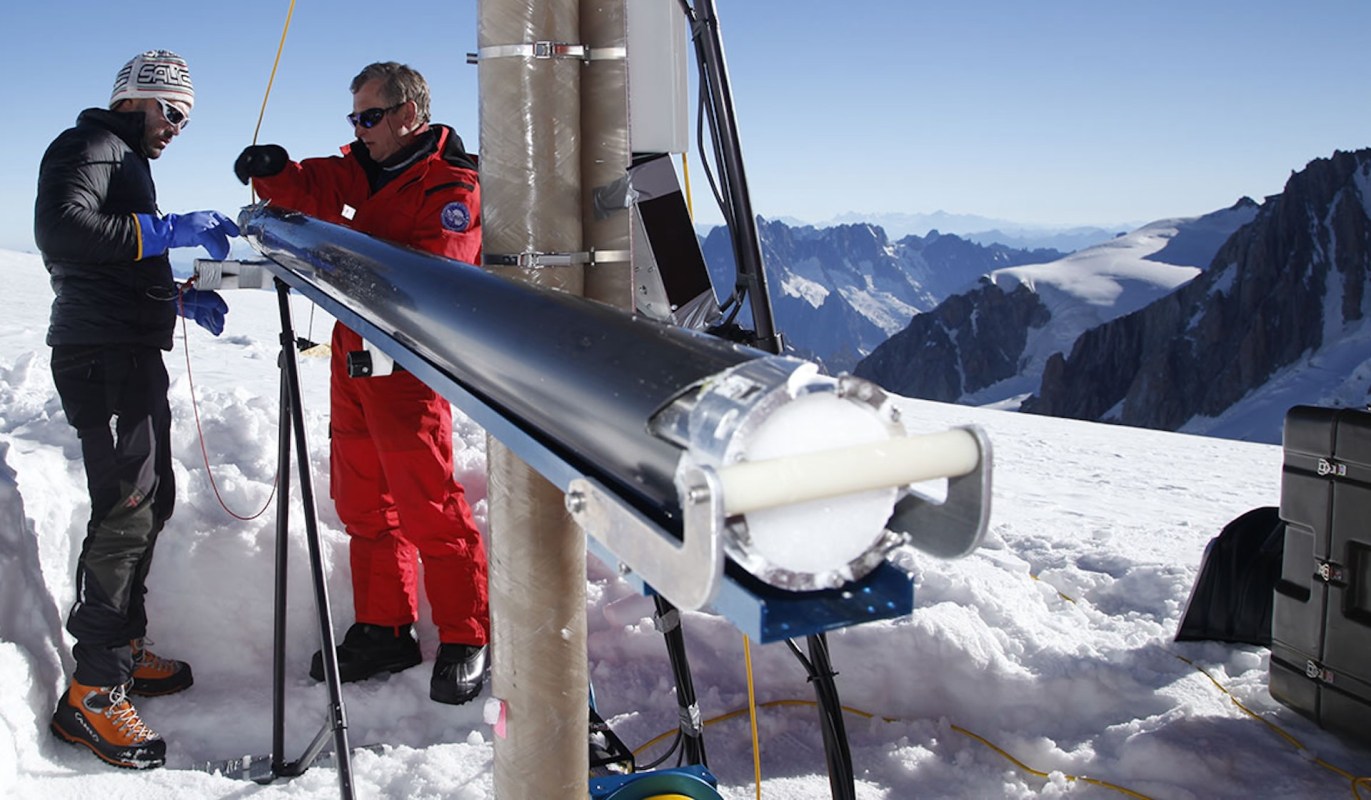Scientists are warning that an unusual result from a sample of glacier ice could indicate humanity is losing a key tool to help formulate meaningful solutions.
What happened?
An E&E News breakdown, republished by Scientific American, has detailed how the Corbassière glacier in Switzerland may no longer be a reliable archive for atmospheric data because of rapidly rising temperatures that are causing the glacier to melt.
According to the breakdown, the team of researchers involved in the Ice Memory Foundation project realized that "some of the expected chemical signatures were missing" in a sample of ice taken in 2020 — two years after the initial sample was retrieved.
The journal Nature Geoscience published its findings in January.
Why is this concerning?
The Ice Memory Foundation points out that protecting ice cores — like the one at Corbassière — is "key to providing scientific advances" and informing policies that can make the world a healthier, better place for humanity.
These resources are beginning to disappear as the world heats up, however. As detailed by Earth.org, a study published in January 2023 estimates that 68% of glaciers worldwide will be no more by 2100 if things continue to warm at the current rate.
Watch now: What's the true environmental impact of renewable energy?
Though extreme weather events have occurred throughout history, rising global temperatures have been directly linked to an increase in these types of events, including floods, wildfires, and droughts, which have also become more severe because of the changes in climate.
If the glaciers continue melting, sea levels will continue to rise at a significant rate, further impacting island nations and coastal communities and potentially leading to additional displacement.
What can I do to help?
Scientists overwhelmingly agree that moving away from dirty-energy fuels is the best way to help regulate the rise of temperatures, as coal, oil, and gas generate more than three-quarters of planet-warming pollution.
In the United States, the Inflation Reduction Act has made it easier for many Americans to transition to clean upgrades such as solar panels, which can save people thousands of dollars on their electric bills while helping the planet.
TCD Picks » Quince Spotlight

Something as simple as unplugging energy vampires when they aren't in use or ditching single-use plastic water bottles — which are typically made from dirty energy — can also cut down on harmful pollution while adding money to your wallet.
Join our free newsletter for weekly updates on the coolest innovations improving our lives and saving our planet.













